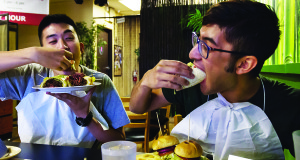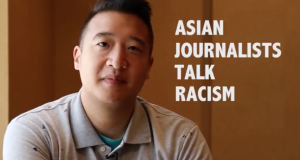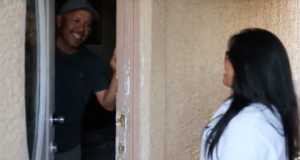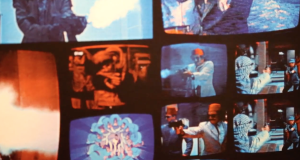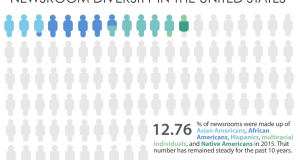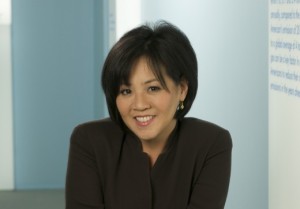
As an anchor and reporter for CNN, CBS and now Al Jazeera America, Joie Chen was one of the first women of color to feature prominently on primetime television.
While other kids were following the antics of Bugs Bunny and the Tasmanian Devil, Joie Chen watched Walter Cronkite on the evening news.
As an anchor and reporter for CNN, CBS and now Al Jazeera America, Chen was one of the first women of color to feature prominently on primetime television. A native of Evanston, Ill. and graduate of Northwestern University’s Medill journalism program, Chen was raised by immigrant parents — a Chinese father and a Japanese mother — who read newspapers and made a family ritual of tuning into the nightly news.
Over the course of her 30-year career, Chen has covered some of the biggest stories of our time, from the Columbine High School shootings to the September 11 attacks. She has been recognized with numerous accolades, including an Emmy for her coverage of the 2002 sniper in Washington, D.C.
Chen talked to VOICES about her journey through the broadcast industry and the role that her identity as an Asian American women has played in it.
- What aspects of your upbringing impacted your decision to become a journalist, and when did you decide that you wanted this to be your career?
Everybody always asks about my voice, which is big and deep. It was never trained, but my parents, who were both immigrants and scientists, were very concerned that I wouldn’t speak English very well. They wouldn’t let me watch the cartoon rabbit, Bugs Bunny, because they thought, ‘What if she learns to talk like the rabbit?’ So they always turned the TV onto Walter Cronkite, and I sort of think that Walter Cronkite taught me how to speak. That’s why I sound the way I do.
Many people have said Asian parents don’t always support their children’s career in journalism, but mine did. They didn’t understand it, necessarily, they didn’t have contacts or experience in that world. But when I said as a 12-year-old that I wanted to be a newspaper reporter, they never flinched. They were always very, very positive and supportive.
- How has your identity — as a woman of color and the child of immigrants — factored into your work and the way you approach it?
I started in Charleston, S.C., and I was definitely a stranger in a strange land. I spent a lot of time having people say, ‘You talk English real good.’ I understood that I was an oddity in that community in South Carolina in the 1980s, but I never felt it was negative. They were just curious — and in a way, that opened up people being able to talk to me. They wanted to know something about me, so they were willing to speak to me.
My identity is my identity, and it was very important for me to represent my community. I don’t think that in my generation we have the luxury to ignore who we are. Particularly in the job I have now, I’m very aware that my identity informs stories that we approach, stories that I personally report, who we hire.
- You were such a pioneering figure for female minority representation in broadcast television. Did you ever feel like you were being typecast?
I certainly think that the industry typecasts and continues to typecast. For a long time, news organizations said, ‘We don’t promote [people of color, LGBTQ] people because there’s nobody out there.’ News organizations would say, ‘We can’t find anybody.’ I think that’s bogus today, because we have a responsibility to move people forward in the pipeline.
- You’ve interviewed presidents and other notable public figures. What are your strategies for not getting intimidated under that kind of pressure?
I don’t think you ever stop being intimidated by seeing someone who has been the leader of the free world (chuckles). I think experience gives you comfort in knowing that you’re doing the right thing and handling it.
- To cap it off, do you have any words of advice for Asian American women aspiring to become broadcast reporters and news anchors?
For me, being on television is not the most interesting part of what I do — it’s the storytelling. If you have an opportunity to do the storytelling that you want to do, it doesn’t really matter what the platform is. If your motivation is really to do storytelling, you can find success and satisfaction in whatever platform, whatever audience.
Joie Chen has been involved in AAJA since the 1980s and serves as its representative on the Accrediting Council on Education in Journalism and Mass Communications.
 VOICES Publishing from the AAJA National Convention
VOICES Publishing from the AAJA National Convention


